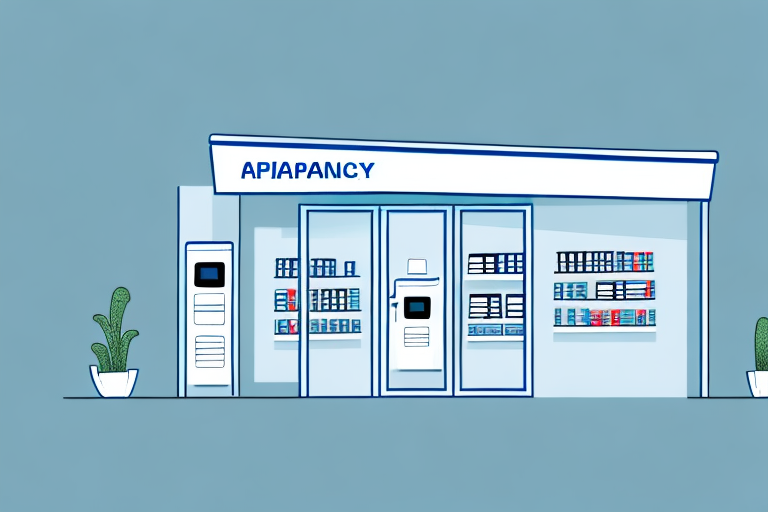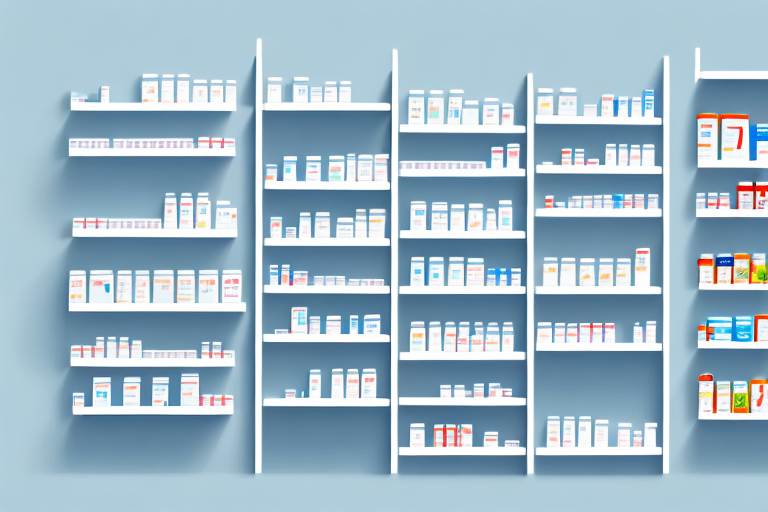The Benefits of Installing Automated Doors in Pharmacies
The adoption of automated doors in pharmacies has surged in recent years, driven by their ability to enhance operational efficiency, strengthen security measures, improve customer experiences, realize cost savings, and ensure compliance with the Americans with Disabilities Act (ADA) guidelines. This comprehensive guide delves into each of these advantages, equipping pharmacy owners and managers with the insights needed to make informed decisions about implementing and maintaining automated door systems.
Ensuring ADA Compliance with Automated Doors
Compliance with the Americans with Disabilities Act (ADA) is crucial for pharmacies to avoid penalties and to provide equitable access to all customers. Automated doors facilitate ADA compliance by offering effortless access for wheelchair users, individuals with mobility impairments, and those with other disabilities. Equipped with advanced sensors, these doors detect approaching individuals and open seamlessly, creating a barrier-free environment that enhances safety for all patrons.
Moreover, automated doors contribute to a safer entry and exit by minimizing the risk of accidents often associated with manual door operation. According to the Centers for Disease Control and Prevention (CDC), environments that are accessible reduce the likelihood of injuries, fostering a more inclusive and secure pharmacy setting.
Enhancing Operational Efficiency
Automated doors significantly boost the efficiency of pharmacy operations in multiple ways:
- Reduced Entry and Exit Time: By streamlining the process of entering and exiting, automated doors decrease wait times, enhancing overall customer satisfaction.
- Regulated Customer Flow: These doors help manage the movement of customers, preventing overcrowding and ensuring a smooth flow within the pharmacy premises.
- Integration with Security Systems: Automated doors can be synchronized with security cameras and alarm systems, providing a cohesive and efficient operational framework.
Furthermore, the integration of automated doors with healthcare information systems can streamline operations, leading to improved service delivery and operational scalability.
Strengthening Pharmacy Security
Security is a paramount concern for pharmacies, given the sensitive nature of the medications and information they handle. Automated doors enhance security through:
- Secure Access Points: Automated doors can be equipped with locks and alarms that activate during emergencies or unauthorized access attempts.
- Keyless Operation: Eliminating the need for physical keys reduces the risk of lost or stolen keys, thereby minimizing unauthorized access.
- Access Control: These doors can restrict entry to specific areas within the pharmacy, ensuring that only authorized personnel can access sensitive zones.
According to a report by the Brookings Institution, integrated security systems are essential in preventing theft and ensuring the safety of both customers and staff.
Improving Customer Experience
Automated doors play a pivotal role in enhancing the customer experience in pharmacies by:
- Seamless Entry and Exit: Customers experience a smooth transition in and out of the pharmacy, reducing stress and improving overall satisfaction.
- Modern Aesthetic: Features like sliding or revolving doors impart a contemporary look, contributing to a positive first impression.
- Customization Opportunities: Pharmacies can personalize automated doors with branding elements, reinforcing their brand identity and marketing efforts.
Additionally, automated doors aid accessibility for customers with disabilities or mobility challenges, ensuring that all patrons can navigate the pharmacy with ease. This inclusivity fosters loyalty and encourages repeat business.
Realizing Cost Savings and Energy Efficiency
Investing in automated doors can lead to substantial cost savings through:
- Energy Conservation: Automated doors minimize the exchange of indoor and outdoor air, maintaining internal temperatures and reducing the reliance on heating and cooling systems. The U.S. Department of Energy reports that energy-efficient door systems can reduce energy consumption by up to 30%.
- Lower Maintenance Costs: Automated doors are designed for durability and require less frequent maintenance compared to traditional manual doors, resulting in long-term savings.
- Reduced Labor Costs: Automation reduces the need for staff to manage door operations, allowing them to focus on customer service and other critical tasks.
Furthermore, automated doors contribute to a reduced carbon footprint, aligning with sustainability goals and appealing to eco-conscious consumers.
Selecting the Right Automated Door for Your Pharmacy
Choosing the appropriate automated door system involves evaluating several key factors:
- Pharmacy Layout and Size: The physical dimensions and layout of the pharmacy determine the type and style of automated door that will be most effective.
- Customer Traffic Volume: High-traffic pharmacies benefit from doors with higher capacity and faster operation speeds to accommodate the flow of customers.
- Budget Considerations: Balancing the initial installation costs with long-term maintenance and energy savings is crucial for making a practical investment.
Additionally, assessing the security features, such as biometric access or integration capabilities with existing security systems, ensures that the selected doors meet the specific security needs of the pharmacy.
Advanced Security Features
Modern automated doors can include:
- Biometric scanners
- Facial recognition technology
- Integration with surveillance systems
These features provide an added layer of security, safeguarding the pharmacy's assets and sensitive information.
Advantages of Automated Sliding Doors
Automated sliding doors are particularly advantageous for pharmacies due to their:
- Ease of Use: Sliding doors operate smoothly, requiring minimal effort from customers.
- High Traffic Management: They can handle large volumes of customers efficiently, making them ideal for busy pharmacies.
- Customization: Available in various materials and finishes, automated sliding doors can be tailored to match the pharmacy's aesthetic.
Moreover, sliding doors enhance accessibility for individuals with mobility aids by providing an unobstructed and automatic entry pathway.
Maintaining and Servicing Automated Doors
Proper maintenance is essential to ensure the longevity and optimal performance of automated doors. Key maintenance practices include:
- Regular Inspection: Periodically check sensors, safety features, and moving parts to identify and address potential issues promptly.
- Cleaning: Keep sensors and door surfaces free from dust, debris, and contaminants to ensure reliable operation.
- Lubrication: Apply appropriate lubricants to moving components to reduce wear and prevent malfunctions.
Staying up-to-date with industry standards and regulations is also crucial. Collaborating with certified maintenance providers ensures that automated doors remain compliant and function seamlessly. According to the American National Standards Institute (ANSI), regular maintenance not only prolongs the lifespan of automated doors but also enhances safety and reliability.
Real-World Success Stories
Case studies highlight the tangible benefits pharmacies experience after installing automated doors:
Case Study 1: Enhanced Accessibility and Customer Satisfaction
A downtown pharmacy implemented automated sliding doors, resulting in a 25% increase in customer foot traffic. Customers reported a more welcoming and accessible environment, leading to higher satisfaction and repeat visits.
Case Study 2: Improved Security Measures
A regional pharmacy chain installed automated doors integrated with biometric scanners, reducing unauthorized access incidents by 40%. This integration ensured that sensitive medication areas remained secure, fostering trust among customers.
Case Study 3: Cost Savings and Energy Efficiency
An independent pharmacy observed a 20% reduction in energy costs after installing energy-efficient automated doors. The seamless operation also decreased maintenance expenses, contributing to overall financial health.
Conclusion
Installing automated doors in pharmacies offers a myriad of benefits, including enhanced security, improved customer experiences, increased operational efficiency, and significant cost savings. By carefully evaluating factors such as pharmacy layout, customer traffic, and budget, pharmacy owners and managers can select the most suitable automated door systems. Ensuring proper maintenance and staying compliant with industry standards further maximizes these benefits, leading to a more effective and customer-friendly pharmacy environment. Embracing automated door technology is a strategic investment that can transform pharmacy operations and drive long-term success.






















